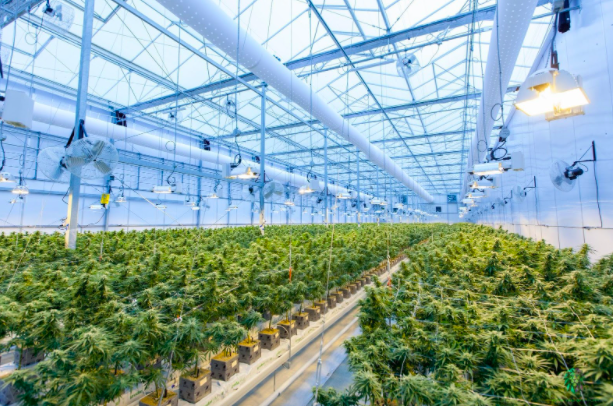Warning: Undefined array key "sharing_networks_networks_sorting" in /var/www/wp-content/plugins/monarch/monarch.php on line 3904
Warning: Trying to access array offset on value of type null in /var/www/wp-content/plugins/monarch/monarch.php on line 3904
In January, Governor Andrew Cuomo strongly reiterated his intent to legalize recreational cannabis — citing not only majority support from New York lawmakers but his own conviction to do so. During his video briefing, the governor stated for the record that this will be his third attempt to legalize cannabis in the Empire State and that he believed a legalization bill “should have been passed years ago.”
Why is legalization important?
Cannabis legalization has not only been shown to consistently reduce crime rates; it would also significantly increase tax revenue and tourism. Another important elephant in the room is the emergence of New York’s black market activity, which has been linked to an outbreak of a mystery lung illness in 2019.
A driving factor in New York’s rash of e-cigarette or vaping use-associated lung injury (EVALI) cases is the circulation of counterfeit THC vape cartridges, watered down with a dangerous additive known as Vitamin E acetate. A legal market would shift consumer traffic away from disreputable vendors and into state-regulated dispensaries. This would eliminate New Yorkers’ exposure to dangerous compounds and offer them safe, scientifically-vetted cannabis extracts, like blueberry terpenes or ethically-sourced CBD.
In this post, we examine the pressing issues behind the push for cannabis legalization in New York, as well as how advocates, business owners, and stakeholders within the industry are reacting to Governor Cuomo’s latest cannabis proposal.
The Looming Budget Crisis
A particularly pressing issue for New York is its estimated tax revenue deficit of $63 billion over the next four years. Governor Cuomo — a notably centrist Democrat — has publicly mulled a number of measures to curtail the shortfall, including the legalization of online gambling, broadening the income threshold for wealth taxes, heavy fines for COVID-19 lockdown violators, and legalizing recreational cannabis.
The impending budget crisis is the result of 2020’s perfect storm of recession catalysts, not the least of which was then-President Trump’s trade war policies and the economic fallout from COVID-19. With new veto-proof Democrat supermajorities in both legislative chambers, New York is better positioned than ever to increase tax revenues by tapping into the legal cannabis industry.
Drawing Inspiration From Neighboring States
As part of his annual State of the State address on January 6th, Governor Cuomo acknowledged the inevitability of cannabis legalization in New York, asking “As everyone knows, Massachusetts has legalized marijuana. New Jersey is going to legalize marijuana. So, what are we really talking about at this point?”
While much is still hazy about Cuomo’s current cannabis legalization proposal, the governor emphasized that it would “promote responsible use, limit the sale of cannabis products to adults age 21 and over, and establish stringent quality and safety controls,” essentially mirroring the gist of the MA and NJ legalization bills. Cuomo went on to state that New York would benefit from “opportunities to invest in research and direct resources to communities that have been most impacted by cannabis prohibition.”
According to Cuomo’s budget director Robert Mujica, cannabis legalization is expected to generate over $300 million in annual tax revenue once fully implemented with all appurtenant rules and regulations for industry operations within the state.
How Do Cannabis Advocates Feel About the Bill?
While the language of Governor Cuomo’s current cannabis legalization proposal includes plenty of specifications to stimulate the economy and suppress black market activity within the Empire State, industry advocates, investors, and business owners are unhappy with key provisions missing from its pages.
According to industry representatives, laying the groundwork for a legal cannabis market is only half the battle. Critical missing elements, such as the right to home cultivation for recreational consumers and medical patients, have been missing from all three of the governor’s proposals thus far. The provision allocating $100 million to grants for communities most impacted by prohibition is currently considered far too low considering New York’s population of over 8.4 million.
Cuomo’s proposal also lacks licensing categories for on-site consumption and cannabis delivery services, the latter being especially important for prospective lockdowns triggered by COVID-19, as well as its anticipated mutation and second wave scenarios. Industry representatives take particular exception to the proposed new Office for Cannabis Management, from where a single appointed executive director would have disproportionate power to regulate New York’s prospective legal cannabis market.
All in all, Cuomo’s proposal draws mixed reviews from the cannabis industry as a whole — not only due to its missing provisions but also because of some of the items outlined in it. While it generally sets up an amenable environment within the state for the industry to begin operations, advocates feel Cuomo’s bill is more grasping for increased tax revenue than opening up the state for a healthy cannabis presence in New York.
As of this writing, advocates and lobbyists are expected to continue pressuring the governor’s office for a significant number of proposed amendments before letting it go to a vote.

